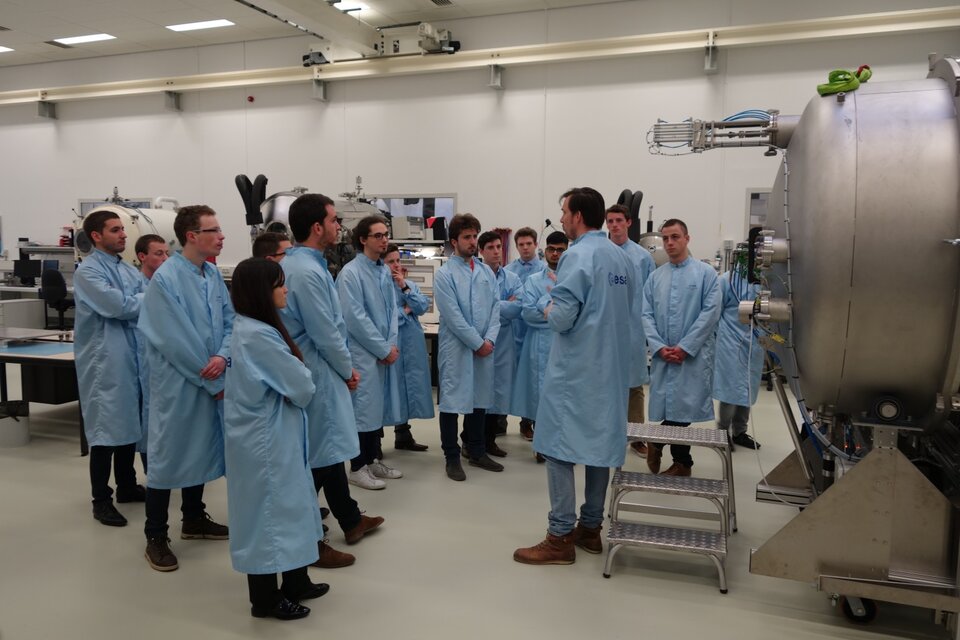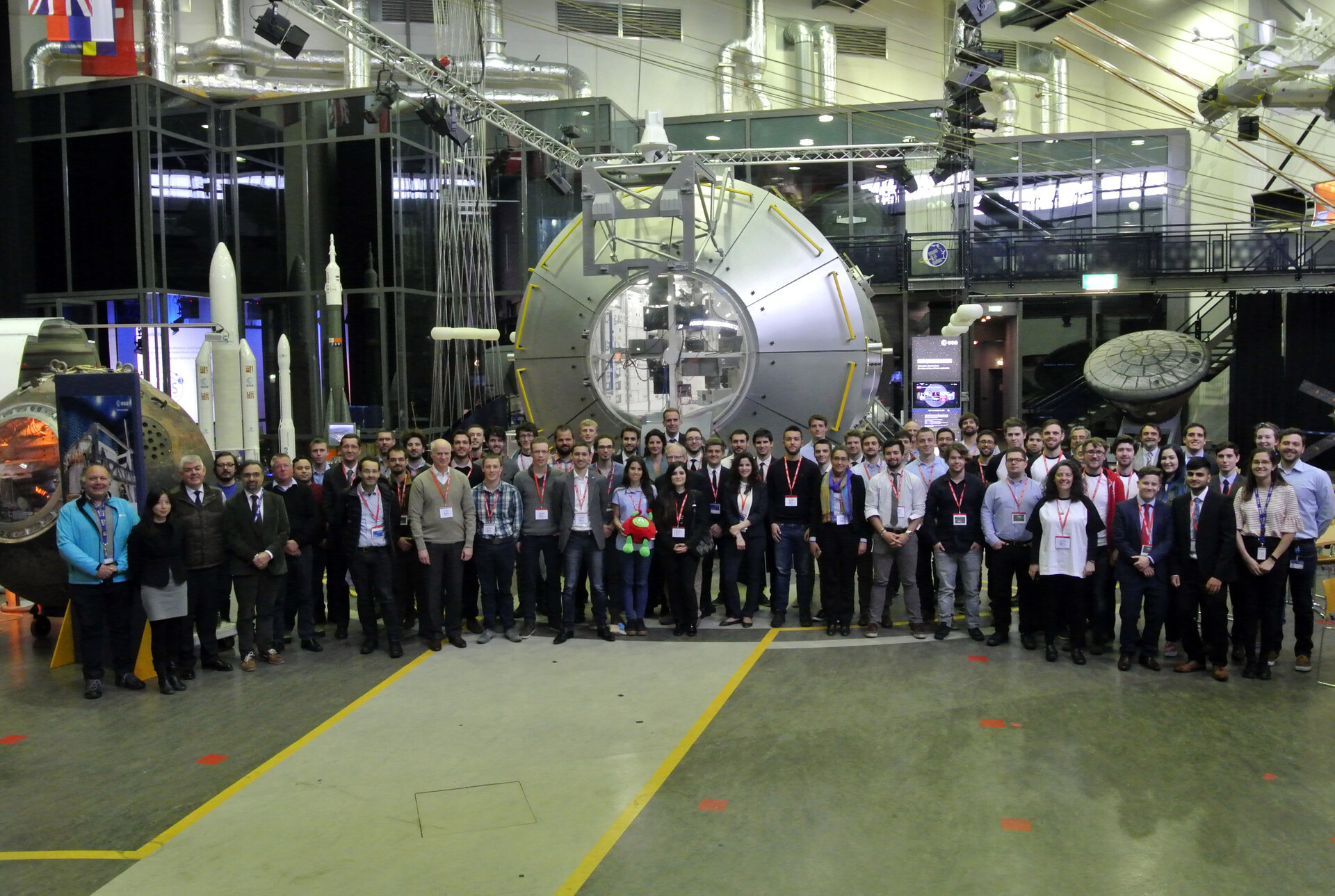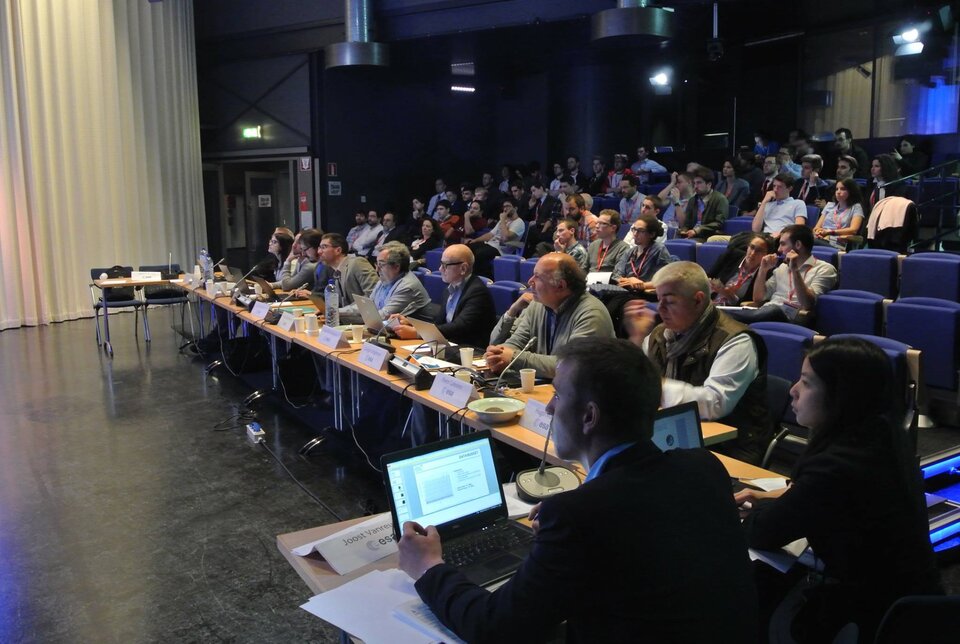Six new CubeSat missions selected for next cycle of Fly Your Satellite!
Six university teams have been selected for the second edition of the Fly Your Satellite! programme after an intensive week at the Selection Workshop, held at ESTEC from 1st to 5th May. The CubeSats evaluation and selection were carried out by a CubeSat Evaluation Panel, consisting of ESA experts from a range of disciplines.
The Fly Your Satellite! programme released a call for proposals on 20 December 2016 for its second edition. Since then, teams from many universities have been working hard to prepare proposals which were reviewed by the CubeSat Evaluation Panel.
The selection process culminated at the Selection Workshop in the first week of May, where eight teams, shortlisted as the best proposals among all applications submitted to ESA, presented their CubeSat missions. During the same week, the students were offered a number of lectures offered by ESA specialists, encompassing a wide variety of topics such as Assembly Integration and Verification, Structural Design, Spacecraft Telecommunications, Space Debris Mitigation, PCB manufacturing, and many more. The CubeSat teams were furthermore offered tours of ESTEC facilities including ESA’s test centre, the Mechanical Systems Laboratory and the Materials and Electrical Components Laboratory.

On Wednesday 3rd May 2017 all eight CubeSat student teams presented their missions, and all them did an outstanding job in presenting their missions and responding to the questions raised by the ESA specialists. All their missions were very interesting, and all them deserved to win the participation in the Fly Your Satellite! programme. Although the decision was not easy for the ESA evaluators due to the excellent quality of all 8 CubeSat proposals, finally the following six teams were selected:
3Cat-4
The 3Cat-4 team is composed of students from the University Politècnica de Catalunya in Spain and the Institut d'Estudis Espacials de Catalunya.Their mission aims to demonstrate capabilities of nanosatellites for Earth Observation using GNSS-R and L-band microwave radiometry as well as for Automatic Identification Services (AIS).
CELESTA
This CubeSat comes from the University of Montpellier, France and will monitor the LEO environment and perform in-orbit testing of a radiation monitor and a single event latch-up experiment.
EIRSAT-1
This project is a joint collaboration between University College Dublin, Ireland and Queens’ University Belfast, Northern Ireland. The team aim to test a novel gamma-ray detector module and an experiment with thermal coatings for spacecraft.
ISTsat-1
This CubeSat project is the first from Instituto Superior Técnico, Portugal. The CubeSat team will use their CubeSat to test an ADS-B receiver that aims to track aircraft in flight.
LEDSAT
The LEDSAT team are from Sapienza – University of Rome in Italy, and plan to improve and test new technologies for tracking of LEO satellites using LEDs.
UoS3
This CubeSat is the first from the University of Southampton in the United Kingdom. Their CubeSat will obtain position and attitude data for the validation of atmospheric models and space object re-entry prediction software.
Now that teams have been selected, they will begin to work on preparing for the Critical Design Review based on instructions from ESA, and their technical documentation will be reviewed by ESA professional specialists in different areas of expertise. The programme will then continue into Phase D, where teams will begin or continue to build their satellites, and perform functional tests.
In recognition of the great work of the two CubeSat teams that unfortunately could not be selected on this occasion for full participation in the programme, they will still be offered support by ESA Education, in a manner that will be agreed with the teams.
Training opportunities will also be opened for students engaged in CubeSat projects at earlier stages, and will focus on the methodology to conduct conceptual, preliminary and detailed design phases of CubeSat projects. Public announcements will be made when those opportunities open.
Congratulations to all teams selected!
More information about the Fly Your Satellite! programme can be found here.



